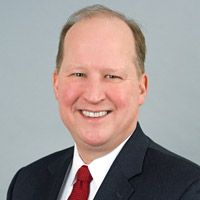An Important Choice: Public or Private School?
If you are at odds over this big decision, here's how to frame the choice, consider the consequences and come to a consensus.

Profit and prosper with the best of Kiplinger's advice on investing, taxes, retirement, personal finance and much more. Delivered daily. Enter your email in the box and click Sign Me Up.
You are now subscribed
Your newsletter sign-up was successful
Want to add more newsletters?

Delivered daily
Kiplinger Today
Profit and prosper with the best of Kiplinger's advice on investing, taxes, retirement, personal finance and much more delivered daily. Smart money moves start here.

Sent five days a week
Kiplinger A Step Ahead
Get practical help to make better financial decisions in your everyday life, from spending to savings on top deals.

Delivered daily
Kiplinger Closing Bell
Get today's biggest financial and investing headlines delivered to your inbox every day the U.S. stock market is open.

Sent twice a week
Kiplinger Adviser Intel
Financial pros across the country share best practices and fresh tactics to preserve and grow your wealth.

Delivered weekly
Kiplinger Tax Tips
Trim your federal and state tax bills with practical tax-planning and tax-cutting strategies.

Sent twice a week
Kiplinger Retirement Tips
Your twice-a-week guide to planning and enjoying a financially secure and richly rewarding retirement

Sent bimonthly.
Kiplinger Adviser Angle
Insights for advisers, wealth managers and other financial professionals.

Sent twice a week
Kiplinger Investing Weekly
Your twice-a-week roundup of promising stocks, funds, companies and industries you should consider, ones you should avoid, and why.

Sent weekly for six weeks
Kiplinger Invest for Retirement
Your step-by-step six-part series on how to invest for retirement, from devising a successful strategy to exactly which investments to choose.
Deciding whether to send your children to public or private school is a huge financial decision, but it’s also fraught with emotions, biases and deeply ingrained personal histories. There is no one right formula or answer to help people determine what’s right for them, but it’s helpful to understand what’s influencing the decision.
Especially with couples, who may have different points of view, the education conversation improves when there’s awareness about emotional triggers, clearly established priorities, the right facts and a framework for decisions.
As a financial adviser, it’s my job to help people make good choices. Here is my advice for clients wrestling with this decision.
From just $107.88 $24.99 for Kiplinger Personal Finance
Become a smarter, better informed investor. Subscribe from just $107.88 $24.99, plus get up to 4 Special Issues

Sign up for Kiplinger’s Free Newsletters
Profit and prosper with the best of expert advice on investing, taxes, retirement, personal finance and more - straight to your e-mail.
Profit and prosper with the best of expert advice - straight to your e-mail.
Understand emotions
Everyone has a personal or family history or a set of cultural values that factors into our thinking about how our children should be educated. For some, public school is an important tradition and reflects commitment to their local community and its diversity. Perhaps both parents are products of a great public-school education, or they moved to a town with high taxes to support excellent schools, and it’s an easy decision that saves a lot of money.
For others, the topic is less clear-cut. Perhaps there is a long line of family members who have attended private school, and it feels like an expectation rather than a choice. Other factors can include a struggling student, the appeal of smaller classrooms, or the desire for a religious influence in the curriculum.
The first step is to articulate how you feel about the decision, and in couples, make sure you are listening, if opinions don’t align perfectly.
Clarify priorities
When I’m working with clients, I try to help them gain clarity about their real values and priorities first, using an exercise that asks them to make trade-offs until they have their own list of priorities. Then they can negotiate a shared list as a couple. As an example, one spouse may prioritize spending time with people they love, while the other may prioritize maintaining a certain lifestyle. Through conversation, couples can discuss their priorities, identifying those they share. They can develop a list that becomes their framework to guide them as they consider the impact of big decisions.
Get the facts
The biggest mistake parents make when thinking about paying private school tuition is failing to forecast the long-term impact of using excess cash flow now instead of saving it for later. Especially when it’s an emotional decision or expectation, clients want to just close their eyes and say yes. It’s critical to quantify all expenses and make a reasonable cash flow forecast for the next several years to see how that affects finances and other goals and priorities, including funding college accounts and retirement plans.
Many couples today have deferred having kids until their mid- or late 30s and are in their 40s when children begin school. These can be peak earning years, but they are also peak saving years, and that’s sometimes lost if children attend private school. By the time children are in college, parents may face a serious retirement saving gap. An honest discussion on cash flow and savings rates over time is important, and the downstream impact should always be considered when parents ask, “Can I afford private schools?”
Establish a framework for decisions
For most clients, the analyses are eye-opening, and they are more aware of the importance of their decision. Identifying the priorities for each person and couple is extremely helpful when it’s time to make up their minds. The goal is to use the family resources for what’s important—as private schools may be—without sacrificing the overarching priorities for quality of life and financial security, among others.
One way to balance these goals is to get creative with making trade-offs so that the decision has more than one black or white variation. As example, to achieve their goals for private education, are they willing to trade:
- K-12 private education for a four-year program instead?
- The assumption that all kids will be treated the same for a more individual decision?
- Some independence in return for asking grandparents to chip in?
- Having one spouse stay at home versus returning to work?
- Cutting other expenses to free up cash flow?
- Pushing planned retirement from 63 to 67?
Find the right answer for you
Going through the process will often lead to a clear decision on forging ahead with a private school education or not, because parents are making an informed decision having weighed all the aspects that they can articulate to family and friends.
Ultimately, knowing your priorities and having conversations that deal with emotional and factual truths result in making choices with clarity, confidence and control—living the life that’s right for you.
Profit and prosper with the best of Kiplinger's advice on investing, taxes, retirement, personal finance and much more. Delivered daily. Enter your email in the box and click Sign Me Up.

John Bratschi is CEO of Prio Wealth, a $2.7 billion registered investment advisory firm in Boston that helps clients prioritize their financial and life goals. With over 33 years' experience in the financial services industry, John works to integrate each client's individual priorities with their plans and portfolios and gives them a framework to make better choices every day.
-
 Dow Adds 1,206 Points to Top 50,000: Stock Market Today
Dow Adds 1,206 Points to Top 50,000: Stock Market TodayThe S&P 500 and Nasdaq also had strong finishes to a volatile week, with beaten-down tech stocks outperforming.
-
 Ask the Tax Editor: Federal Income Tax Deductions
Ask the Tax Editor: Federal Income Tax DeductionsAsk the Editor In this week's Ask the Editor Q&A, Joy Taylor answers questions on federal income tax deductions
-
 States With No-Fault Car Insurance Laws (and How No-Fault Car Insurance Works)
States With No-Fault Car Insurance Laws (and How No-Fault Car Insurance Works)A breakdown of the confusing rules around no-fault car insurance in every state where it exists.
-
 For the 2% Club, the Guardrails Approach and the 4% Rule Do Not Work: Here's What Works Instead
For the 2% Club, the Guardrails Approach and the 4% Rule Do Not Work: Here's What Works InsteadFor retirees with a pension, traditional withdrawal rules could be too restrictive. You need a tailored income plan that is much more flexible and realistic.
-
 Retiring Next Year? Now Is the Time to Start Designing What Your Retirement Will Look Like
Retiring Next Year? Now Is the Time to Start Designing What Your Retirement Will Look LikeThis is when you should be shifting your focus from growing your portfolio to designing an income and tax strategy that aligns your resources with your purpose.
-
 I'm a Financial Planner: This Layered Approach for Your Retirement Money Can Help Lower Your Stress
I'm a Financial Planner: This Layered Approach for Your Retirement Money Can Help Lower Your StressTo be confident about retirement, consider building a safety net by dividing assets into distinct layers and establishing a regular review process. Here's how.
-
 The 4 Estate Planning Documents Every High-Net-Worth Family Needs (Not Just a Will)
The 4 Estate Planning Documents Every High-Net-Worth Family Needs (Not Just a Will)The key to successful estate planning for HNW families isn't just drafting these four documents, but ensuring they're current and immediately accessible.
-
 Love and Legacy: What Couples Rarely Talk About (But Should)
Love and Legacy: What Couples Rarely Talk About (But Should)Couples who talk openly about finances, including estate planning, are more likely to head into retirement joyfully. How can you get the conversation going?
-
 How to Get the Fair Value for Your Shares When You Are in the Minority Vote on a Sale of Substantially All Corporate Assets
How to Get the Fair Value for Your Shares When You Are in the Minority Vote on a Sale of Substantially All Corporate AssetsWhen a sale of substantially all corporate assets is approved by majority vote, shareholders on the losing side of the vote should understand their rights.
-
 How to Add a Pet Trust to Your Estate Plan: Don't Leave Your Best Friend to Chance
How to Add a Pet Trust to Your Estate Plan: Don't Leave Your Best Friend to ChanceAdding a pet trust to your estate plan can ensure your pets are properly looked after when you're no longer able to care for them. This is how to go about it.
-
 Want to Avoid Leaving Chaos in Your Wake? Don't Leave Behind an Outdated Estate Plan
Want to Avoid Leaving Chaos in Your Wake? Don't Leave Behind an Outdated Estate PlanAn outdated or incomplete estate plan could cause confusion for those handling your affairs at a difficult time. This guide highlights what to update and when.